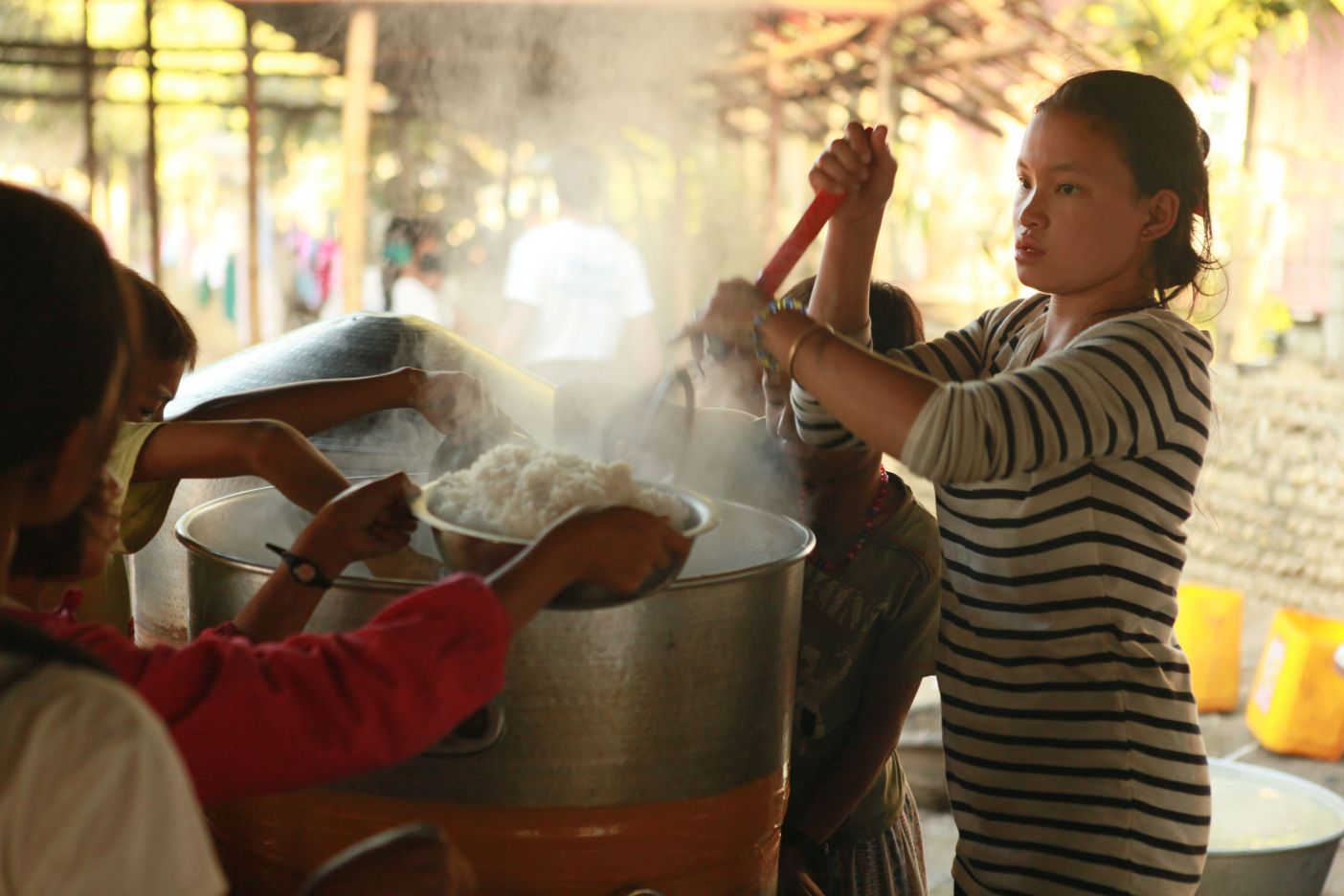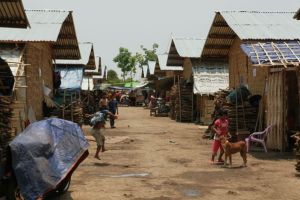
Maran Ji suffered a miscarriage while fleeing fighting in Myanmar. She now has shelter and support, but can’t return home. Both photos by Made Ferguson/Trocaire.
By Maurice McQuillan, northern Myanmar
We have all seen the press coverage about Myanmar moving down the road towards democracy. Aung San Suu Kyi has been released from house arrest and has been elected to the national assembly, while US President Obama recently visited the country.
Behind the headlines, the slow process of democratisation continues.
However, not so well known is the fact that ethnic conflict continues unabated in Myanmar’s more remote border regions. People in the Kachin State, in the north of Myanmar along the Chinese border, are caught in the crossfire of an ongoing conflict.
A ceasefire agreement that had been in effect for 17 years was broken on 9 June 2011, leading to a state of war between the Kachin Independence Army (KIA) and the army of the Government of Myanmar.
Over 85,000 civilians have lost their homes and livelihoods and are now scattered across the region in makeshift jungle dwellings and ad-hoc camps.
In this dangerous situation, Trócaire (Caritas Ireland) is helping to provide food, shelter and basic services to 24,000 people in some of the most remote areas of this region.
 But writing from Myitkina, where I am monitoring the work in the camps for the displaced, I know that this is about more than political wrangling, military struggle and statistics on the numbers of civilians displaced.
But writing from Myitkina, where I am monitoring the work in the camps for the displaced, I know that this is about more than political wrangling, military struggle and statistics on the numbers of civilians displaced.
It is about ordinary men women and children.
On 7 December I travelled out from Myikyina to St Paul’s camp, about 25 miles from the Chinese border. In the camp I met a young woman called Maran Ji and she told me her story.
Maran Ji was heavily pregnant when the fighting reached her remote village. The village was at the centre of a battle for a key bridge. It was night and the village was being raked by small arms fire and the bridge was destroyed by mortars.
Maran Ji had to take her chances and flee on foot. She had to swim the river to get away, but after the trauma, exertion and stress she suffered a miscarriage on the far bank. She then trekked on foot all the way to St Paul’s camp.
It is now over six months since she fled her village. She has not been able to go back. She is doing well physically but the mental scars remain. With the help of Trócaire and our partners, she now has a roof over her head, she is healthy and she is safe. That is something.
Myanmar is moving forward towards democratisation. You will read much of this in the coming weeks, months and years. But spare a thought for Maran Ji in St Paul’s camp 25 miles from the Chinese border. 2013 will not be an easy year for her.
Maurice McQuillan is Trócaire’s Emergency Manager. This article was originally published on the Trócaire blog.
